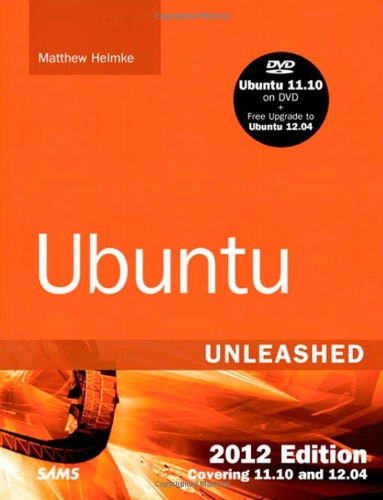|

Ubuntu Unleashed 2012 Edition: Covering 11.10 and 12.04 By Matthew Helmke
Publisher: S[am].s; 7 edition 2012 | 864 Pages | ISBN: 0672335786 | PDF | 5 MB
Ubuntu Unleashed is filled with unique and advanced information for everyone who wants to make the most of the Ubuntu Linux operating system. This new edition has been thoroughly revised and updated by a long-time Ubuntu community leader to reflect the exciting new Ubuntu 11.10 (“Oneiric Ocelot”) and the forthcoming Ubuntu 12.04.
Former Ubuntu Forum administrator Matthew Helmke covers all you need to know about Ubuntu 11.10/12.04 installation, configuration, productivity, multimedia, development, system administration, server operations, networking, virtualization, security, DevOps, and more—including intermediate-to-advanced techniques you won’t find in any other book.
Helmke presents up-to-the-minute introductions to Ubuntu’s key productivity and Web development tools, programming languages, hardware support, and more. You’ll find brand-new coverage of the new Unity desktop, new NoSQL database support and Android mobile development tools, and many other Ubuntu 11.10/12.04 innovations. Whether you’re new to Ubuntu or already a power user, you’ll turn to this book constantly: for new techniques, new solutions, and new ways to do even more with Ubuntu!
Matthew Helmke served from 2006 to 2011 on the Ubuntu Forum Council, providing leadership and oversight of the Ubuntu Forums, and spent two years on the Ubuntu regional membership approval board for Europe, the Middle East, and Africa. He has written about Ubuntu for several magazines and websites, is a lead author of The Official Ubuntu Book. He works for The iPlant Collaborative, which is funded by the National Science Foundation and is building cyberinfrastructure for the biological sciences to support the growing use of massive amounts of data and computationally intensive forms of research.
Quickly install Ubuntu, configure it, and get your hardware running right
Configure and customize the new Unity desktop (or alternatives such as GNOME)
Get started with multimedia and productivity applications, including LibreOffice
Manage Linux services, users, and software packages
Administer and use Ubuntu from the command line
Automate tasks and use shell scripting
Provide secure remote access
Manage kernels and modules
Administer file, print, email, proxy, LDAP, and database services (both SQL and NoSQL)
Use both Apache and alternative HTTP servers
Support and use virtualization
Use Ubuntu in cloud environments
Learn the basics about popular programming languages including Python, PHP, and Perl, and how to use Ubuntu to develop in them
Learn how to get started developing Android mobile devices
|

